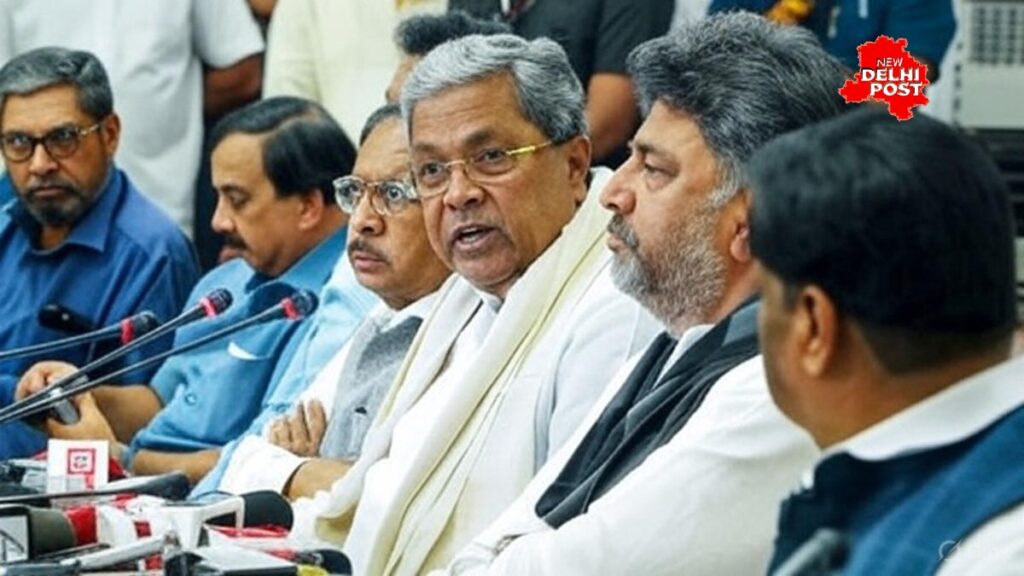A deadly stampede during RCB’s IPL victory celebrations on June 4, 2025, claims 11 lives, leading to the arrest of four, including RCB’s marketing head, as Karnataka authorities probe the incident amidst political and legal scrutiny.
Bengaluru: On June 6, 2025, Bengaluru police arrested four individuals, including Royal Challengers Bangalore (RCB) marketing head Nikhil Sosale, in connection with the tragic stampede outside Chinnaswamy Stadium that killed 11 and injured over 50 during RCB’s IPL victory celebrations. The other three arrested are linked to DNA Entertainment, the event management company responsible for the event, as the investigation, now led by the Criminal Investigation Department (CID), aims to uncover the lapses that led to the disaster.
Chaos at Chinnaswamy: A Celebration Turned Deadly
The stampede occurred on June 4, 2025, during a felicitation event for RCB’s first IPL win in 18 years, defeating Punjab Kings. RCB’s announcement on X about free passes drew an estimated 2-3 lakh fans to the 35,000-capacity stadium, far exceeding expectations. The lack of crowd control, compounded by the cancellation of a planned victory parade from Vidhana Soudha to the stadium, led to chaos. Fans climbed gates and pushed barricades, resulting in 11 deaths—mostly young fans under 40, including a 14-year-old—and 56 injuries. Karnataka CM Siddaramaiah called it a “deeply shocking” incident, announcing ₹10 lakh compensation per deceased family and free treatment for the injured.
Arrests and Accountability: RCB and DNA Under Fire
Nikhil Sosale was arrested at Kempegowda International Airport while attempting to board a flight to Mumbai, alongside DNA Entertainment’s Sunil Mathew, Kiran Kumar, and another unnamed official. The FIR, filed at Cubbon Park Police Station under Bharatiya Nyaya Sanhita sections like culpable homicide (Section 105), cites criminal negligence by RCB, DNA, and the Karnataka State Cricket Association (KSCA). KSCA officials, including Secretary Shankar and Treasurer Jayaram, are reportedly absconding, with police actively searching for them. RCB pledged ₹10 lakh per deceased family and launched the ‘RCB Cares’ fund for the injured, but public outrage over poor planning persists.
Political Fallout and Official Response
The incident has sparked political controversy. The BJP demanded the resignation of CM Siddaramaiah and Deputy CM D.K. Shivakumar, alleging governmental negligence, while Congress accused the opposition of politicizing the tragedy. Siddaramaiah suspended Bengaluru Police Commissioner B. Dayananda and seven other senior officers, replacing him with IPS officer Seemant Kumar Singh. A judicial probe led by retired Karnataka High Court judge Justice Michael D’Cunha has been ordered, with a 30-day deadline for a report. The Karnataka High Court took suo motu cognizance, demanding a status report by June 10, 2025, and treating the case as a public interest litigation.
Broader Implications and Public Sentiment
The tragedy highlights systemic issues in crowd management at large events in India. A 2025 ORF study notes that India has seen over 50 stampede incidents in the past decade, often due to inadequate planning, underscoring the need for stricter safety protocols. Social activist Snehamayi Krishna criticized the government, arguing, “RCB is a private entity, not a state representative. Holding such an event without preparation was reckless.” On X, posts reflect public anger, with users demanding accountability and better safety measures. The incident’s timing, amidst global events like the Trump-Musk feud and India’s infrastructure push with the Chenab bridge inauguration, underscores the need for balanced governance in high-profile events.
Moving Forward: A Call for Change
The CID’s Special Investigation Team, led by ADGP BK Singh, will probe deeper into the roles of RCB, DNA, and KSCA. With over 1,300 police personnel deployed, the state government admitted to underestimating the crowd. India’s head coach Gautam Gambhir, speaking before a team departure to England, criticized the event’s organization, stating, “I’ve never believed in roadshows; lives are more important.” As investigations continue, the focus shifts to ensuring such tragedies are not repeated, with calls for new SOPs for mega events and stricter accountability for organizers.


